Why Is Web Scraping For Airline Network Route Monitoring Crucial for Airlines?
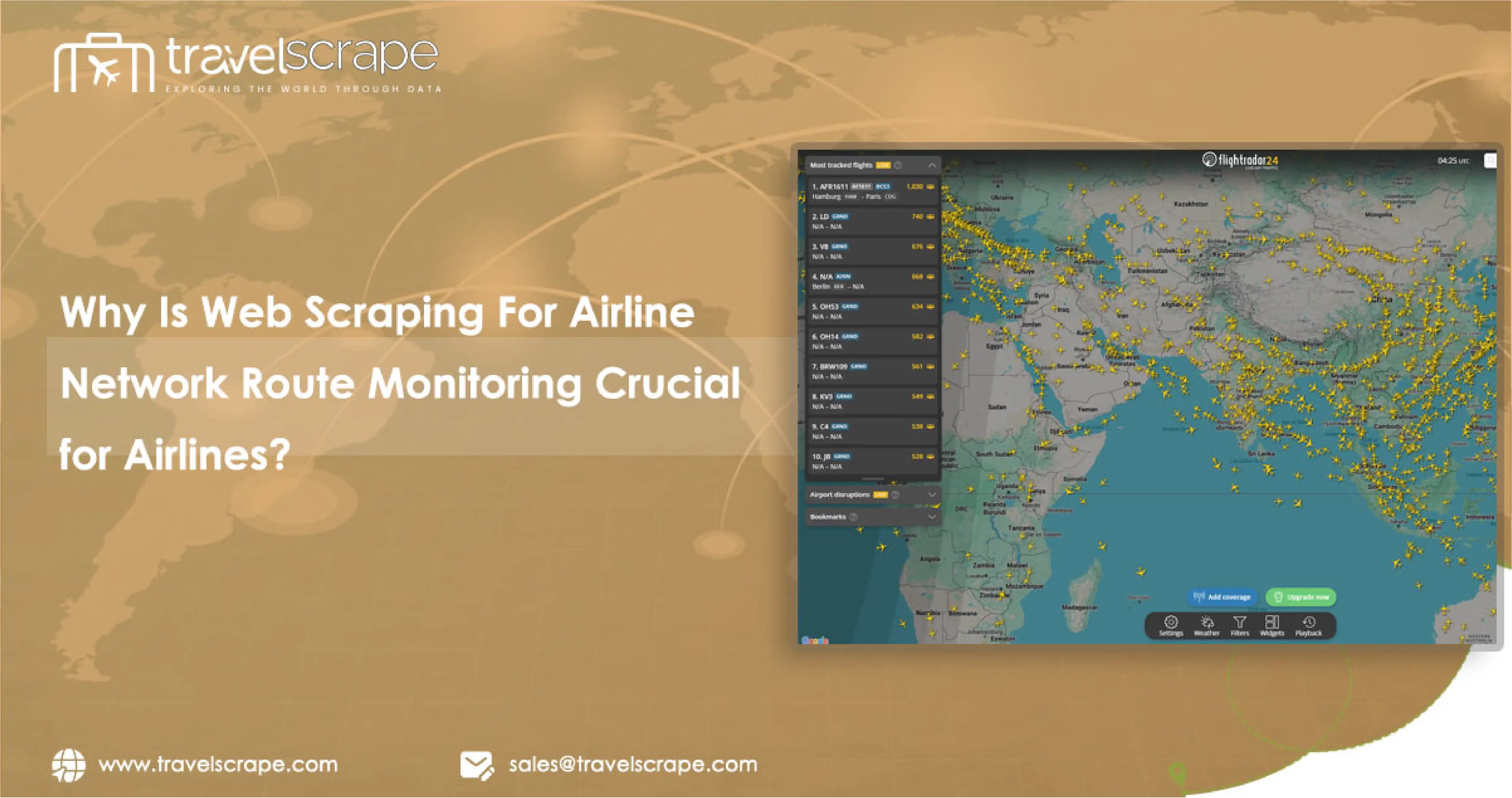
Introduction
In the fiercely competitive aviation industry, airlines must constantly refine their operations to sustain profitability while ensuring outstanding customer experiences. A key component of this process is network route management—the intricate coordination of flight paths, schedules, and resource distribution across global destinations. Web Scraping For Airline Network Route Monitoring has become essential for airlines looking to enhance their competitive advantage through data-driven decision-making.
The Evolution of Airline Data Management
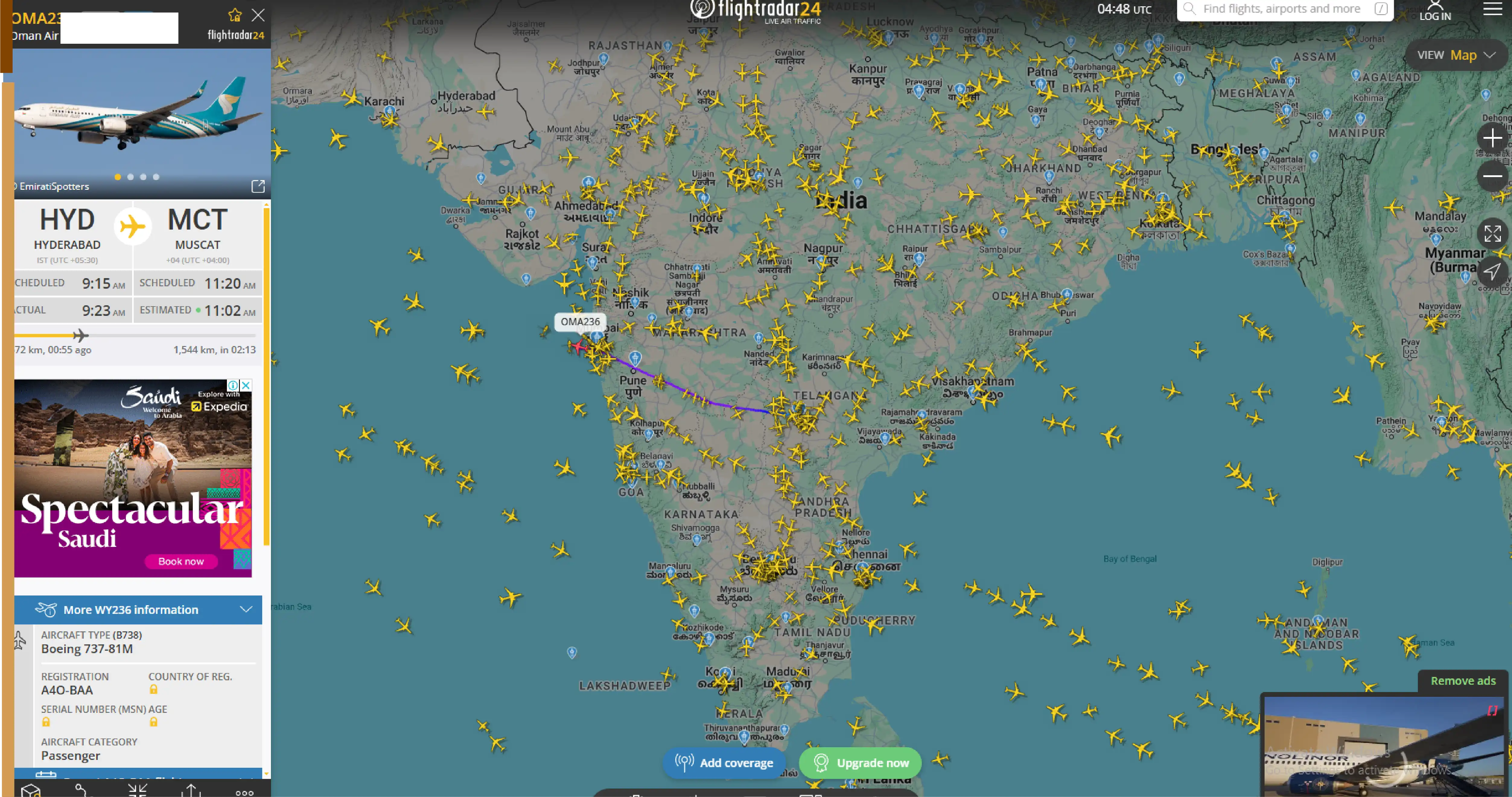
Airlines previously depended on manual processes and fragmented data sources to track routes and schedules. This method was not only inefficient but also highly susceptible to errors. With the digital transformation of the aviation industry, the way airlines collect, analyze, and leverage data has drastically improved.
Today, Airline Network Mapping has evolved into a highly advanced process that demands access to vast volumes of real-time data from multiple sources. This is where web scraping technology is crucial, enabling airlines to gather and analyze vital information automatically.
Understanding Web Scraping in the Aviation Context
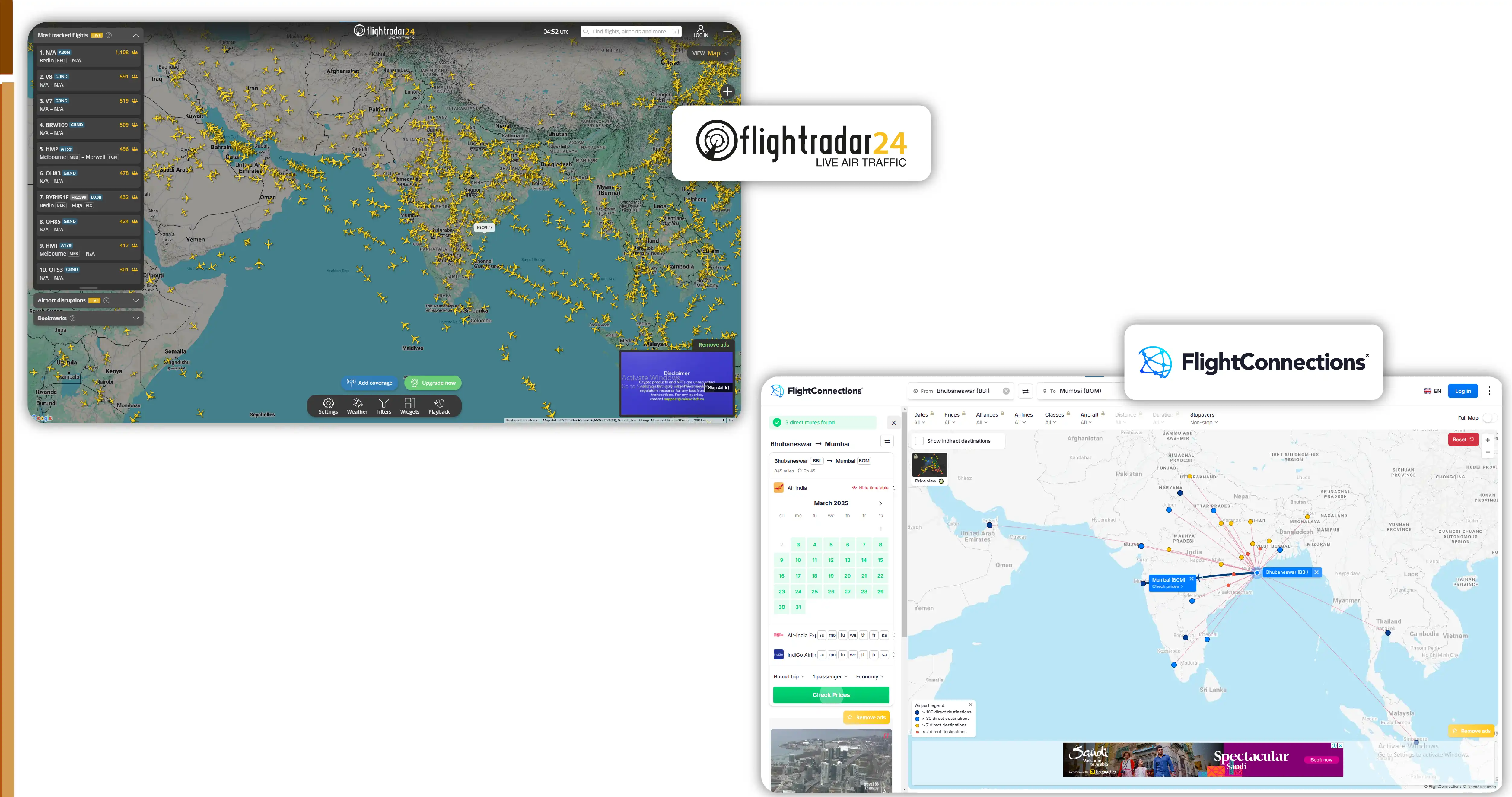
Web scraping is the automated process of extracting data from websites and online platforms.
When applied to the airline industry, it enables carriers to collect valuable information about:
- Flight schedules and route networks.
- Competitor pricing strategies.
- Load factors and demand patterns.
- Airport operational data.
- Customer reviews and sentiment.
Web Scraping For Airline Network Analysis provides carriers with comprehensive insights that would be impossible to gather manually. By automating the data collection process, airlines can focus their resources on analyzing information and making strategic decisions rather than gathering it.
The Critical Role of Route Monitoring in Airline Strategy
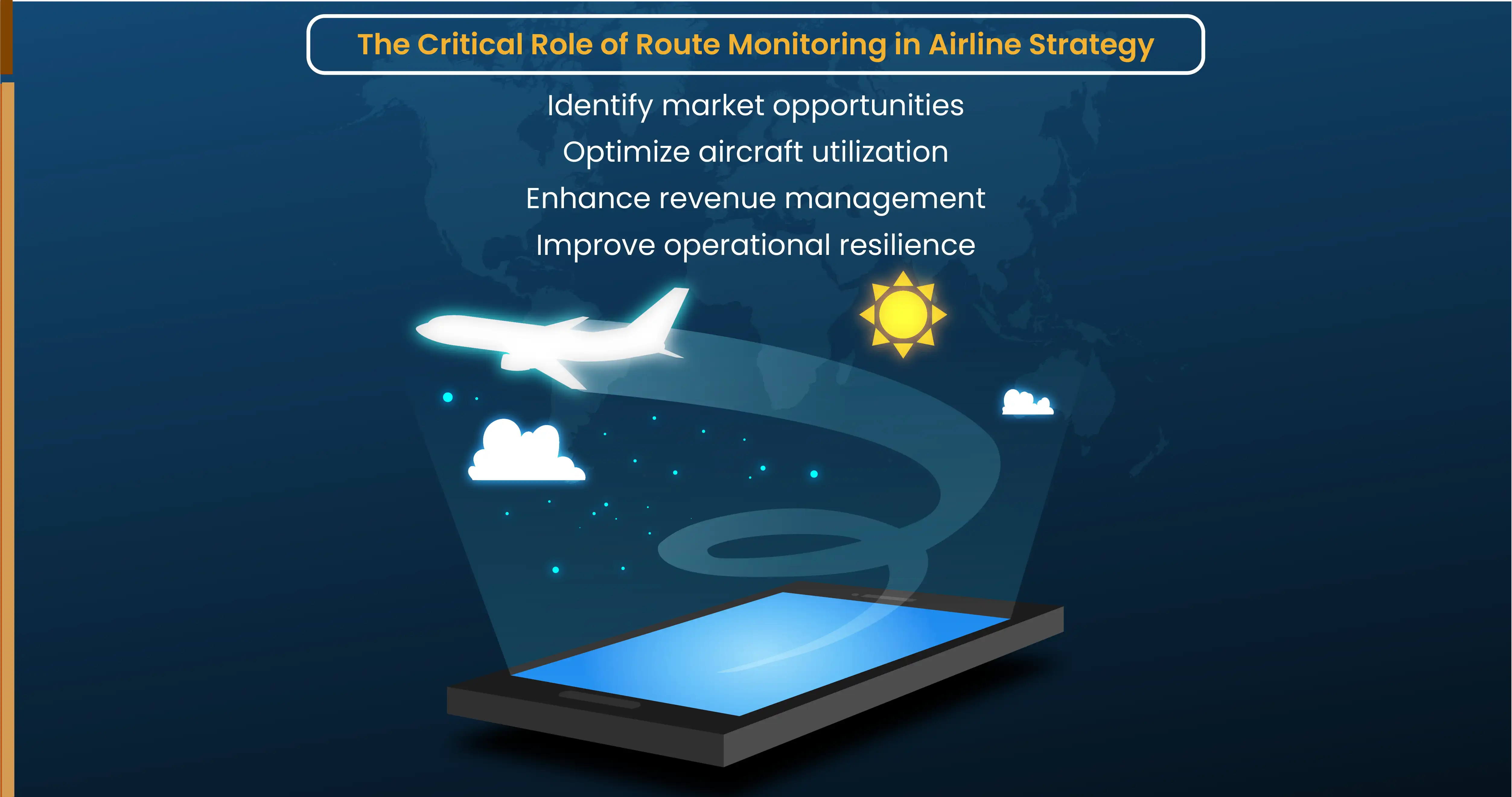
A well-optimized route network is essential for any airline’s success. Balancing passenger demand with operational efficiency is key to maintaining profitability.
Leveraging flight route monitoring through data scraping empowers airlines to:
- Identify market opportunities: Analyzing competitor routes and schedules reveals underserved markets and high-demand routes, helping airlines expand strategically.
- Optimize aircraft utilization: Data-driven insights enhance fleet efficiency by refining flight frequencies and scheduling.
- Enhance revenue management: Understanding pricing patterns across routes enables airlines to implement more strategic fare structures and optimize inventory.
- Improve operational resilience: Real-time route monitoring allows for swift responses to disruptions, ensuring better contingency planning.
By integrating data scraping into their strategy, airlines can stay ahead in a competitive landscape while maximizing profitability.
Real-Time Data: The Competitive Advantage
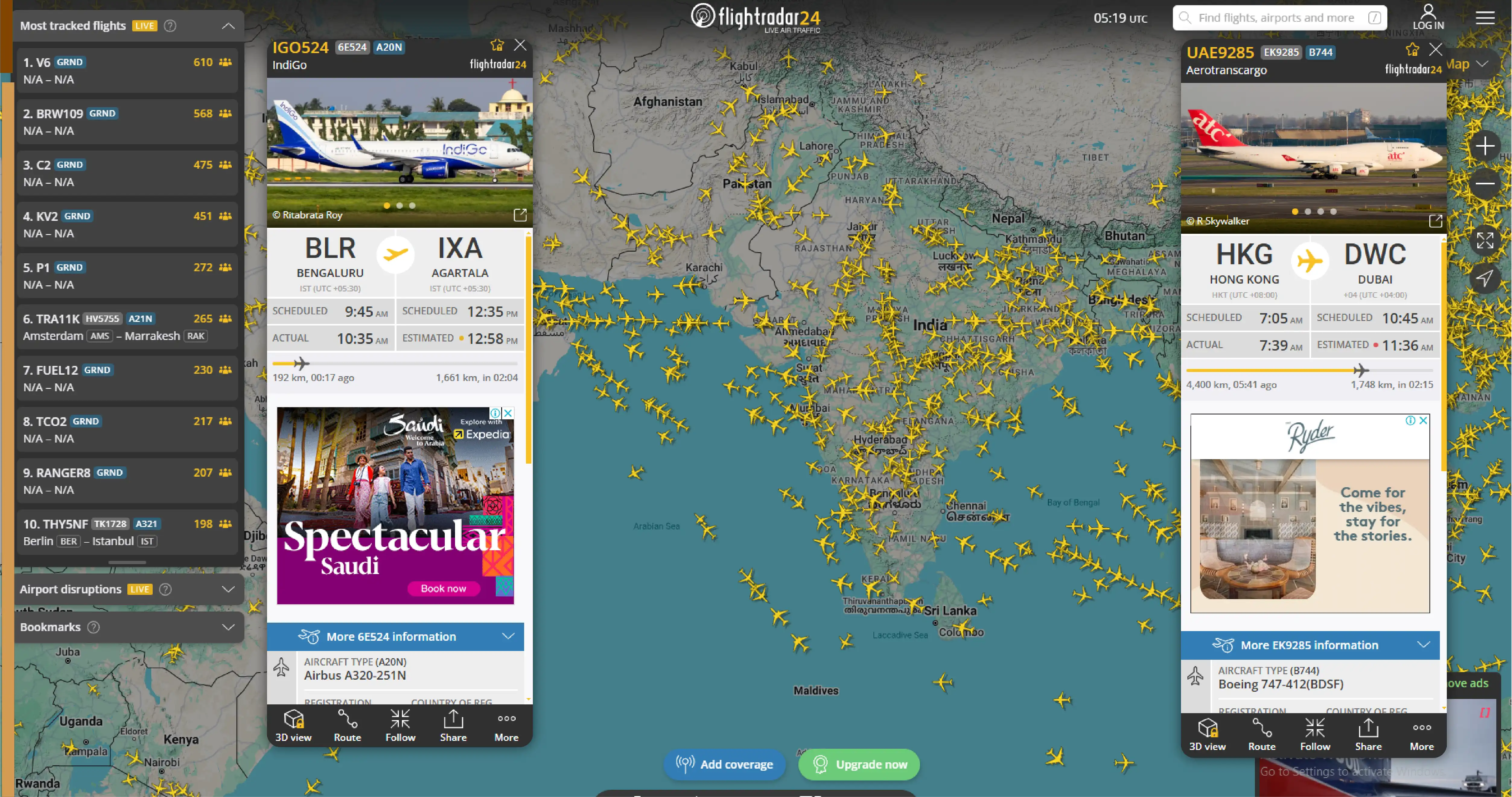
One of the most significant benefits of Web Scraping For Airline Network Route Monitoring is the ability to access real-time information. Having up-to-the-minute data is crucial in an industry where flight schedules, competitor strategies, and global events can shift rapidly.
With Real-Time Flight Schedule Monitoring, airlines can:
- Track competitor schedule adjustments.
- Analyze route performance metrics.
- Identify shifts in passenger demand trends.
- Respond swiftly to market disruptions.
This real-time capability transforms decision-making from reactive to proactive, enabling airlines to stay ahead by leveraging web scraping technology for strategic advantage.
Enhancing Operational Efficiency through Data Extraction
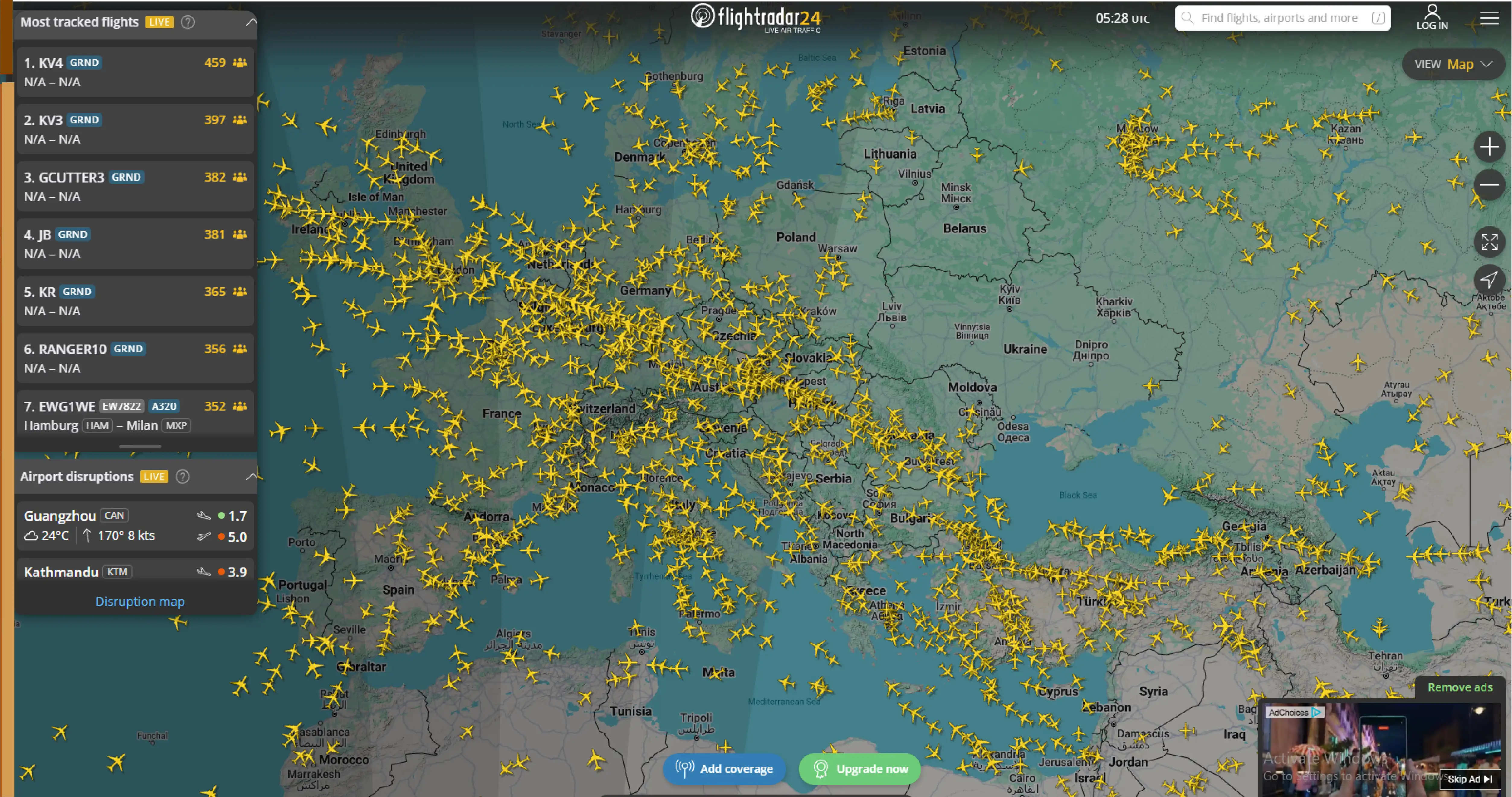
Efficiency is critical in the airline industry, where tight margins and high operational costs demand precision. Airline Schedule Tracking By Data Extraction plays a vital role in optimizing operations by:
- Allocating fleets efficiently based on route performance.
- Improving crew scheduling and resource management.
- Reducing fuel costs through optimized route planning.
- Minimizing aircraft turnaround times.
Airlines can pinpoint inefficiencies and make data-driven improvements by automating data collection and analysis. This results in significant cost savings and enhances overall service quality.
Competitive Intelligence and Market Analysis

Gaining insight into competitor strategies is key for airlines seeking a competitive edge. Flight Price Data Intelligence collected through web scraping offers valuable insights into:
- Competitor pricing strategies across different routes.
- Seasonal pricing trends and fluctuations.
- Promotional discounts and fare adjustments.
- Premium service pricing comparisons.
With this intelligence, airlines can strategically position their offerings by differentiating services, adjusting pricing strategies, or capitalizing on niche market opportunities to maximize revenue.
Challenges and Solutions in Airline Data Scraping
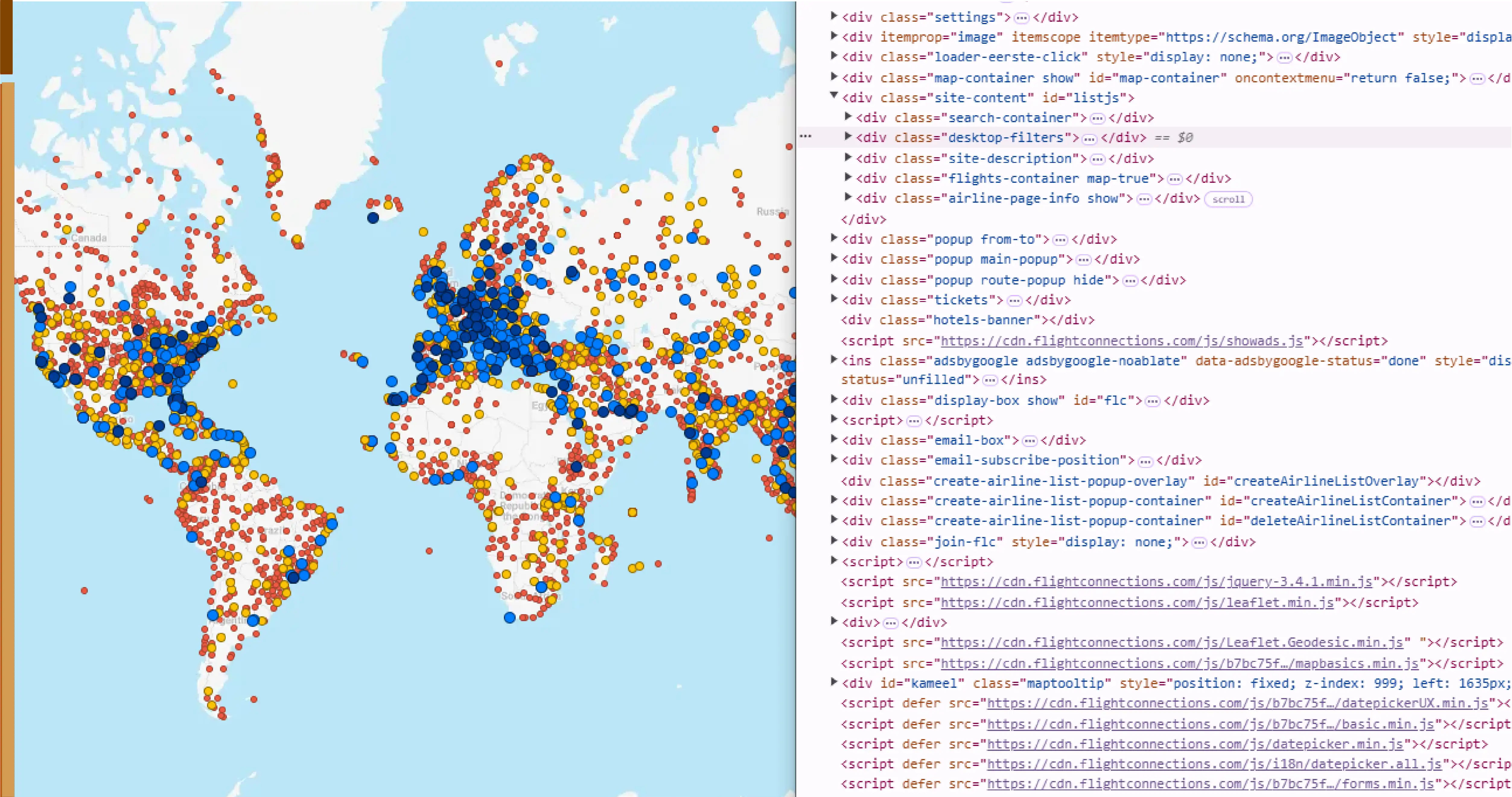
While Web Scraping For Airline Network Route Monitoring delivers significant advantages, it also comes with challenges that airlines need to overcome:
1.Data Quality and Accuracy
The effectiveness of web scraping hinges on the quality of data collected. Airlines must implement rigorous validation processes to ensure accuracy and reliability, preventing errors and inconsistencies in the extracted information.
2.Technical Complexity
Building and managing efficient web scraping systems requires advanced technical skills. Many airlines collaborate with Airline Data Scraping Services providers specializing in delivering customized solutions tailored to the aviation industry’s needs.
3.Ethical and Legal Considerations
To ensure compliance, airlines must align their data collection strategies with legal regulations and website terms of service.
Ethical scraping practices include:
- Respecting robots.txt directives.
- Maintaining reasonable request rates.
- Preventing excessive load on target websites.
- Upholding strong data security and privacy measures.
4.Integration with Existing Systems
For airlines to maximize the benefits of scraped data, seamless integration with existing management systems is essential. Many carriers rely on Travel Data Intelligence experts to extract data and ensure its smooth incorporation into operational workflows.
Implementing Web Scraping for Route Optimization

Airlines aiming to leverage Web Scraping For Airline Network Route Monitoring typically follow a well-structured approach to ensure efficiency and accuracy:
- Define Objectives: Clearly outline the goals for data collection, whether it's route optimization, competitive analysis, or pricing strategy.
- Select Data Sources: Identify the most relevant websites and platforms that provide valuable insights tailored to your needs.
- Build or Acquire Scraping Infrastructure: Develop an in-house solution or collaborate with specialized providers offering Travel Scraping API solutions.
- Implement Data Processing Systems: Establish robust workflows for cleaning, validating, and analyzing the collected data to ensure accuracy.
- Integrate Insights into Decision-Making: Develop seamless processes that allow scraped data to drive strategic and operational improvements.
- Monitor and Refine: Continuously assess and enhance data collection and analysis strategies for optimal results.
By following this structured approach, airlines can maximize the value of Web Scraping For Airline Network Route Monitoring and gain a competitive edge in route planning and optimization.
The Impact of Web Scraping on Demand Forecasting

Accurate demand forecasting is essential to optimizing capacity and pricing for airlines. Leveraging flight route monitoring through data scraping provides valuable insights, including:
- Historical booking patterns across different routes.
- Seasonal demand variations affecting travel trends.
- Impact of events and holidays on route-specific demand.
- Competitor load factors and capacity adjustments.
By utilizing these insights, airlines can make data-driven decisions on capacity allocation, ensuring the optimal number of seats per route to maximize load factors and yield.
How Travel Scrape Can Help You?
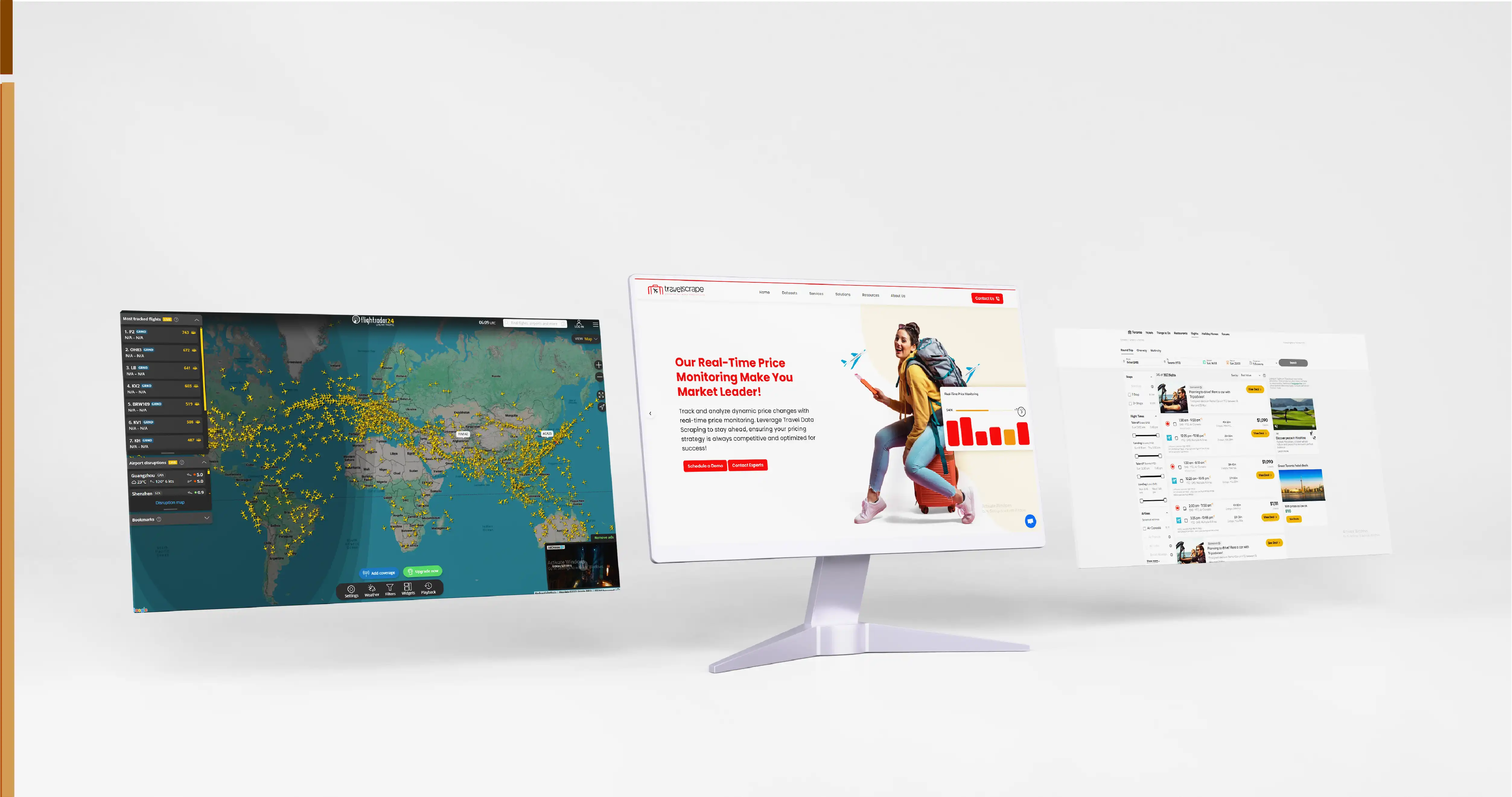
We recognize airlines' complexities in gathering and utilizing data for route monitoring and network optimization.
That’s why our specialized Airline Data Scraping Services are built to meet the specific demands of the aviation industry, offering:
- Custom data collection solutions designed around your unique routes and competitors.
- Advanced Real-Time Flight Schedule Monitoring for up-to-the-minute insights.
- Comprehensive Flight Price Data Intelligence covering global markets.
- Seamless system integration through our influential Travel Scraping API.
- Ethical and compliant data collection aligned with website policies.
- Expert-driven analysis to convert raw data into actionable strategies.
Our team of aviation data specialists blends deep industry expertise with technical proficiency to deliver impactful solutions. Whether you’re a regional carrier or a global airline, we provide the data intelligence you need to stay ahead in a highly competitive market.
Conclusion
In today's fast-evolving aviation landscape, Web Scraping For Airline Network Route Monitoring is essential for optimizing operations, maximizing revenue, and staying ahead of the competition. Airlines that embrace data-driven decision-making outperform those that don't.
With the increasing influence of Travel Aggregators, airlines must adopt Travel Industry Web Scraping to gain real-time insights into market trends, competitor pricing, and customer preferences. Integrating a Travel Scraping API ensures access to precise, up-to-date pricing data, empowering airlines to refine their revenue strategies confidently.